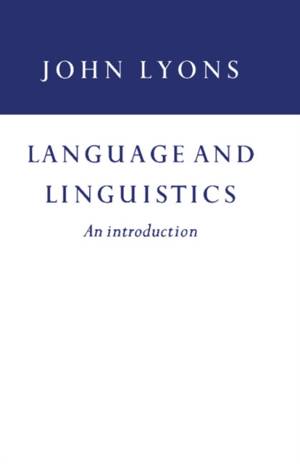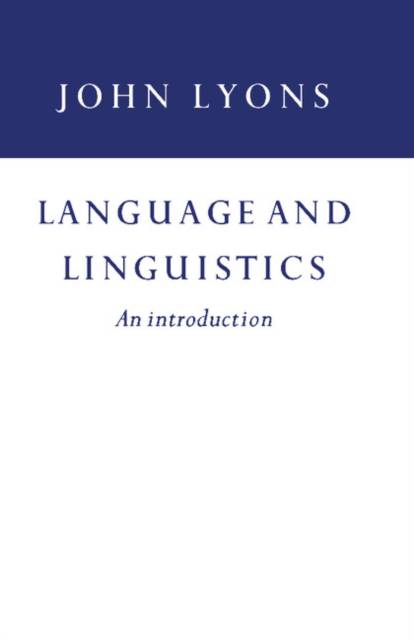
- Afhalen na 1 uur in een winkel met voorraad
- Gratis thuislevering in België vanaf € 30
- Ruim aanbod met 7 miljoen producten
- Afhalen na 1 uur in een winkel met voorraad
- Gratis thuislevering in België vanaf € 30
- Ruim aanbod met 7 miljoen producten
Zoeken
Omschrijving
This 1981 book is a general introduction to linguistics and the study of language, intended particularly for beginning students and readers with no previous knowledge or training in the subject. There is first a general account of the nature of language and of the aims, methods and basic principles of linguistic theory. John Lyons then introduces in turn each of the main sub-fields of linguistics: the sounds of language, grammar, semantics, language change, psycholinguistics: the sounds of language, grammar, semantics, language change, psycholinguistics, language and culture. Throughout the book he emphasizes particularly those aspects of the discipline that seem fundamental and most likely to remain important. He stresses throughout the cultural at least as much as the biological context of human language, and shows how the linguist's concerns connect productively with those of the traditional humanities and the social sciences. Each chapter has a wide-ranging set of discussion questions and revision exercises, and extensive suggestions for further reading. The exposition is marked throughout by the author's characteristic clarity, balance and authority.
Specificaties
Betrokkenen
- Auteur(s):
- Uitgeverij:
Inhoud
- Aantal bladzijden:
- 370
- Taal:
- Engels
Eigenschappen
- Productcode (EAN):
- 9780521297752
- Verschijningsdatum:
- 29/05/1981
- Uitvoering:
- Paperback
- Formaat:
- Trade paperback (VS)
- Afmetingen:
- 136 mm x 216 mm
- Gewicht:
- 417 g

Alleen bij Standaard Boekhandel
+ 207 punten op je klantenkaart van Standaard Boekhandel
Beoordelingen
We publiceren alleen reviews die voldoen aan de voorwaarden voor reviews. Bekijk onze voorwaarden voor reviews.











